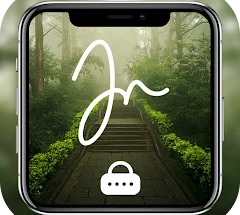introduction
In an age where digital content is abundant and sometimes harmful, ensuring a safe and secure online experience is crucial, especially for mobile device users. Android and iPhone devices offer various filtering options to protect users from inappropriate or harmful content. This article explores the best practices for filtering content effectively on both platforms.
Understanding the Need for Filtering on Android and iPhone
Importance of Filtering
With the internet being a vast repository of information, not all content is suitable for every audience. Filtering ensures that users, especially children and vulnerable individuals, are shielded from potentially harmful material such as explicit content, violence, or scams.
Risks associated with unfiltered content
Accessing unfiltered content can lead to various negative consequences, including exposure to explicit material, online harassment, and susceptibility to cyber threats such as malware and phishing attacks.
Built-in Filtering Options
Both Android and iPhone devices come equipped with built-in features to filter content.
Android
Android devices offer built-in parental controls that allow users to restrict access to specific apps, websites, and content types. Users can set up restricted profiles for children and customize content filtering settings according to their preferences.
iPhone
Similarly, iPhones provide robust parental control features through Screen Time settings. Parents can set content restrictions, manage app usage, and impose screen time limits to ensure a safe and balanced digital experience for their children.
Third-Party Filtering Apps
In addition to built-in options, users can opt for third-party filtering apps to enhance content filtering capabilities on their devices.
Android
Several third-party apps available on the Google Play Store offer advanced content filtering features, including website blockers, app blockers, and real-time monitoring of online activities.
iPhone
Similarly, the App Store offers a range of third-party filtering apps that provide additional control and customization options for content filtering on iPhones. These apps often come with features such as content category filtering, keyword blocking, and activity tracking.
Customizing Filtering Settings
Both Android and iPhone devices allow users to customize filtering settings according to their specific requirements.
Android
Android users can fine-tune content filtering settings by adjusting parameters such as age restrictions, content ratings, and SafeSearch settings for web browsing.
iPhone
iPhone users can customize content restrictions through Screen Time settings, where they can specify allowed apps, websites, and content types, as well as set communication limits and downtime schedules.
Parental Control Features
Android and iPhone devices offer comprehensive parental control features to empower parents in managing their children’s digital activities.
Android
Android’s parental control features include options to monitor app usage, set screen time limits, and restrict access to mature content across multiple user profiles.
iPhone
iPhone’s Screen Time settings enable parents to monitor and manage their children’s device usage effectively, including setting up family sharing, enforcing content restrictions, and receiving activity reports.
Filtering for Specific Content Types
Different types of content require tailored filtering approaches to ensure effective protection.
Social media
Filtering social media content involves monitoring and restricting access to inappropriate or harmful posts, messages, and profiles.
Web browsing
Web filtering aims to block access to websites containing explicit, violent, or otherwise unsuitable content, as well as phishing and malware-infected sites.
Apps
Filtering apps involves controlling access to app stores, as well as managing app permissions and content ratings to prevent exposure to inappropriate content.
Tips for Effective Filtering
To maximize the effectiveness of content filtering, users can follow these practical tips:
- Regularly update filtering settings to adapt to evolving threats and user preferences.
- Test filtering configurations to ensure they work as intended and make adjustments as necessary.
- Maintain open communication with users, especially children, about the importance of safe internet practices and the purpose of content filtering.
Balancing Security and Accessibility
While robust content filtering is essential for online safety, it’s crucial to strike the right balance between security and accessibility.
Striking the right balance
Finding the optimal balance between stringent content filtering and allowing access to legitimate content is key to ensuring a positive user experience.
Avoiding over-restrictiveness
Overly restrictive filtering settings may lead to frustration and hinder productivity, so it’s essential to avoid excessive blocking and censorship.
Impact on Device Performance
Intensive content filtering processes may sometimes impact device performance, particularly on older or less powerful devices.
Future Trends in Filtering Technology
As technology evolves, filtering solutions are likely to become more sophisticated, incorporating artificial intelligence and machine learning algorithms to improve accuracy and efficiency.
Case Studies
Examining real-world examples of successful content filtering implementations can provide valuable insights and best practices for users and organizations.
Common Challenges and Solutions
Addressing challenges such as circumvention techniques, false positives, and user resistance requires a multifaceted approach involving technology, education, and policy.
Conclusion
Filtering content effectively on Android and iPhone devices is paramount for ensuring a safe and secure digital experience. By leveraging built-in features, third-party apps, and customizable settings, users can protect themselves and their families from inappropriate or harmful content while maintaining a healthy balance between security and accessibility




